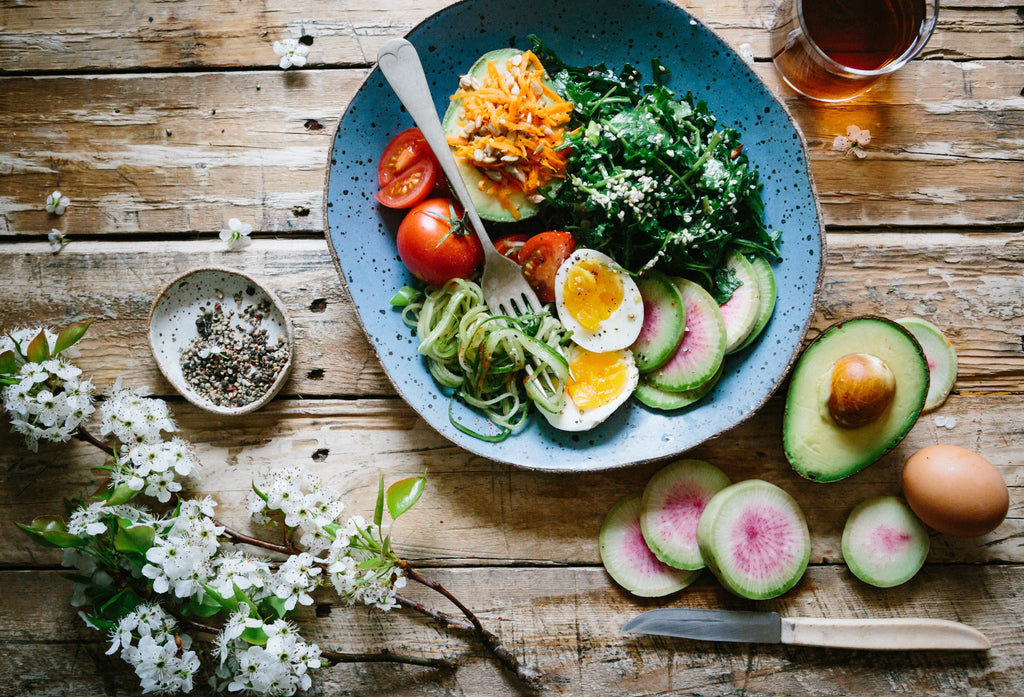How To Love The Environment More In 2022
If you’ve ever felt like you don’t know where to start when it comes to supporting the environment, remember the words of Tao Te Ching: “A journey of a thousand miles begins with a single step.”
Making changes don't have to come in the form of big, grandiose gestures. They can be as simple as switching to a keep cup for your morning coffee or purchasing your clothes second hand. Here are 4 ways you can love the environment more in 2022.
Second-hand is the new black
According to Forbes, household consumption accounts for 60% of global gross domestic product (GDP). If it sounds dire, there is hope. They report that the resale market is growing 11 times faster than traditional retail.
“Climate justice requires system change and mass behaviour change. Young consumers are now using their voice and dollar to put pressure on companies to transform and become part of the solution. This is a difficult move for legacy brands that need to self-disrupt and make short-term sacrifices for long-term gains. But if they don’t, consumers will simply choose their competitors. Becoming circular and sustainable will become a prerequisite for business,” says Forbes writer Kian Bakhtiari.
We love Vestiaire Collective for second-hand buys.
Learn to live plastic-free (or at least reduce your plastic use)
Sustainability consultant and former environmental lawyer Jacqui Scruby has spent her life believing that it's up to governments and big business to fix the environment.
“I underestimated the power of the individual. But after cutting my own waste by 400kg per year (and then getting a little excited about extrapolating that out) and seeing the impacts of individual action to drive corporate and government change - I'm committed to empowering individuals to take responsibility for their waste,” she says.
She’s so committed, she launched the world's only plastic free online masterclass.
While 100% plastic-free is not unachievable, we know that depending on your circumstances, it can seem unrealistic (for the moment). So take baby steps.
Make it a point to bring your reusable shopping bags from home when you do your groceries - or even better, keep a few in your car. Be mindful of what you're buying for home and the family. Ask yourself - do I have to buy carrots in a plastic bag? Or pre-cut celery sticks wrapped in plastic wrap?

Eat less meat
Have you heard of “meat consciousness”? It’s something we all need.
According to Greenpeace, “The livestock sector — raising cows, pigs and chickens — generates as much greenhouse gas emissions as all cars, trucks and automobiles combined. Cattle ranchers have clear cut millions of square kilometres of forests for grazing pastures, decimating natural “carbon sinks.”
Start to think about keeping some of your week meat-free. As Michael Pollen said in his bestseller book In Defense of Food, "Eat food. Not too much. Mostly plants."

Use eco-friendly household products
We’re huge fans of Koala Eco. “We use only 100 percent pure Australian essential oils, because these, when combined with other non-toxic ingredients like vinegar, plant-based surfactants, sugar-based biodegradable alcohol and bicarbonate soda are just such great alternatives to caustic cleaning products,” says co-founder Jessica Bragdon.
“We were one of the first businesses to be invited to re-badge as a .eco company by the Vancouver-based .eco movement, launched by two former United Nations Environment Programme staffers. It’s backed by more than 50 environmental organisations including Conservation International, United Nations Global Compact and WWF; so we’re conscious of being part of a strong network that unites in support of each other’s goals in making a positive change for the planet.”
How is Ora reducing our footprint?
We take a pragmatic approach to carbon emissions and carbon neutrality, and work hard every day to reduce the emissions from the manufacture and distribution of our products.
We do what we can to reduce our use of packaging materials, waste, electricity and paper, and wherever possible, we use materials that are fully recyclable or post-consumer recycled.
From our infinitely recyclable amber glass jars to our eco-friendly, sugarcane fibre waste labels, we make sure to think of our impact on the environment in every step of our process.
Ora is also a proud member of 1% for the Planet. We donate 1% of our total sales annually to environmental causes. This year, we're reducing our carbon footprint by offsetting carbon emissions with Greenfleet.



